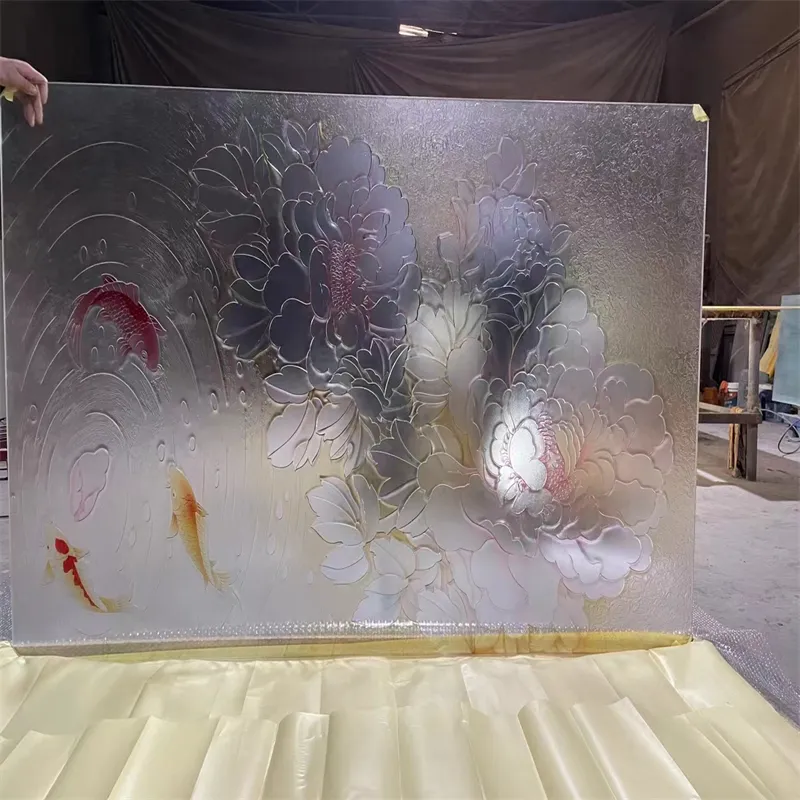Dec . 07, 2024 06:53 Back to list
types of glass coating
Types of Glass Coating Enhancing Performance and Aesthetics
Glass is a versatile material used in various applications, ranging from architecture to automotive design. To improve its performance and extend its lifespan, various types of glass coatings have been developed. These coatings serve different purposes, including enhancing aesthetics, providing protection, and improving energy efficiency. This article will explore the primary types of glass coatings, their benefits, and their applications.
1. Tinted Coatings
Tinted glass coatings are widely used in both residential and commercial buildings to reduce glare and control solar heat gain. These coatings are made by adding colored pigments to the glass during the manufacturing process. Tinted coatings help reduce the amount of sunlight that enters a space, which can lower cooling costs and create a more comfortable indoor environment. Common applications include office buildings, where glare can be distracting, and residential homes seeking privacy without sacrificing natural light.
2. Reflective Coatings
Reflective glass coatings enhance the energy efficiency of buildings by reflecting solar radiation away from the glass surface. These coatings are often metallic and are applied to the outside of the glass. They not only help in reducing heat buildup but also improve the overall appearance of buildings by providing a sleek, modern look. Reflective coatings are especially popular in high-rise buildings and skyscrapers, contributing to a striking aesthetic while lowering energy consumption.
3. Low-E (Low Emissivity) Coatings
Low-E coatings are a type of thin, transparent coating that is applied to the glass surface to minimize the amount of infrared and ultraviolet light that passes through. These coatings work by reflecting heat back into a space during the winter and keeping unwanted heat outside during the summer. Low-E coatings are particularly beneficial in energy-efficient windows, contributing to significant energy savings for buildings and homes. They are widely used in residential windows, commercial storefronts, and passive solar designs.
types of glass coating

4. Self-Cleaning Coatings
Self-cleaning glass coatings utilize advanced nanotechnology to create a surface that repels dirt and grime. These coatings work through a combination of hydrophilic and hydrophobic properties The hydrophilic surface helps break down dirt through exposure to sunlight, while the hydrophobic aspect allows water to roll off, carrying contaminants away. Self-cleaning glass is particularly advantageous for hard-to-reach windows, skylights, and buildings located in polluted environments, significantly reducing maintenance costs and effort.
5. Anti-Reflective Coatings
Anti-reflective coatings are designed to reduce glare and improve visibility by minimizing the amount of light reflected off the glass surface. These coatings are particularly important in applications like eyewear, camera lenses, and display screens, where clarity is essential. By reducing reflections, anti-reflective coatings enhance the visual experience and can improve the performance of optical devices.
6. UV Protection Coatings
UV protection coatings are designed to block harmful ultraviolet rays, which can cause fading and deterioration of furnishings, artwork, and other materials inside a building. These coatings are essential for homes with expensive decor or for businesses that display goods susceptible to UV damage. By applying UV protection coatings, homeowners and business owners can prolong the life of their interior items and create a more comfortable environment free from harmful radiation.
Conclusion
The diverse range of glass coatings available today offers numerous benefits ranging from enhanced aesthetics to improved energy efficiency and reduced maintenance. Tinted, reflective, low-E, self-cleaning, anti-reflective, and UV protection coatings each play a vital role in tailoring glass for specific applications. As technology advances, we can expect even more innovative glass coatings designed to meet the evolving demands of consumers and industries alike. Whether in architecture, automotive design, or everyday products, the right glass coating can significantly impact performance and visual appeal, marking an essential consideration for any project involving glass.
-
Safety and Style with Premium Laminated Glass Solutions
NewsJun.24,2025
-
Reinvents Security with Premium Wired Glass
NewsJun.24,2025
-
Premium Float Glass Line for Modern Architecture
NewsJun.24,2025
-
Low Emissivity Glass for Energy-Efficient Architecture
NewsJun.24,2025
-
High-Performance Insulated Glass Solutions for Modern Architecture
NewsJun.24,2025
-
Elevates Interior Style with Premium Silver Mirror
NewsJun.24,2025
Related PRODUCTS














